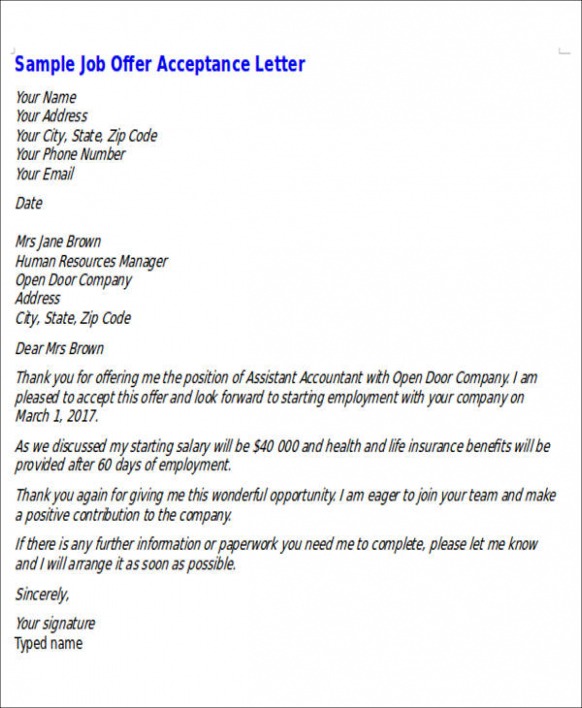Formal Offer Of Employment Template Taxpayers experiencing tax financial obligation troubles hardly ever contrast the IRS deal in concession with the Chapter 13 bankruptcy. Often, the Phase 13 will certainly supply a extra particular treatment for the taxpayer to solve tax debt. This post examines the family member benefits of both the offer in concession as well as Chapter 13.

An deal in concession may be one of the most marketed tax obligation remedy. You can not listen to radio or enjoy TV without being bombarded by advertisements to settle your tax financial obligation. Typically the ads declare that the internal revenue service has announced that leniency in the collection of the tax debt exists for a limited time. The sad reality is that the compassion statement by the IRS was frequently for other trouble area, such as tax obligation sanctuaries. The internal revenue service rejects around 85 percent of all deals in concession submitted because of question as to collectibility. Offers in concession are generally filed due to the fact that the taxpayer believes the tax obligation financial debt can not be paid, Doubt regarding Collectibility is one of the most typical sort of deal in concession. Other sorts of deals in concession are outside the scope of this article.
The benefit of the deal in concession is that the tax obligation obligations, including the relevant penalties as well as passion, are lowered to the quantity the internal revenue service and the taxpayer agree can be paid. Both events need to agree to the terms of the deal in concession. The offer in concession is a contract between the IRS and the taxpayer. The terms of the agreement can be imposed against the taxpayer in addition to the internal revenue service.

Acceptance of the deal in concession happens when the IRS believes that the offer is at the very least as much as could be gathered by the internal revenue service over the ten years life of the statute of limitations. The IRS will certainly decline an deal that is for a lesser quantity than it can otherwise accumulate.
The internal revenue service uses a uniform set of monetary requirements that are not adaptable in both the analysis of the quantity paid monthly in an installment agreement and in an deal in compromise. These requirements limit the expenses for living that the taxpayer can claim are necessary for living. The criteria consist of food, real estate and also energies, transportation, and also out of pocket health cost. The criteria might trigger drastic problems for a taxpayer with a reasonably higher standard of living. Business expenses are not impacted by the standards.
The analysis of the minimal offer in concession that will certainly make the offer processable is the equity in the taxpayer’s assets plus the quantity that could be paid in an installation arrangement over a specific time period. The period of the future month-to-month repayments considered by the internal revenue service relies on just how the deal will certainly be paid by the taxpayer. The internal revenue service desires 48 months of monthly payment if the taxpayer provides a round figure. The internal revenue service wants 60 months of regular monthly repayment if the deal is to be paid in a short-term arrangement of two years or much less. However, the internal revenue service will think about valid issues such as retirement as well as wellness of the taxpayer in shortening the duration of the multiplier.


